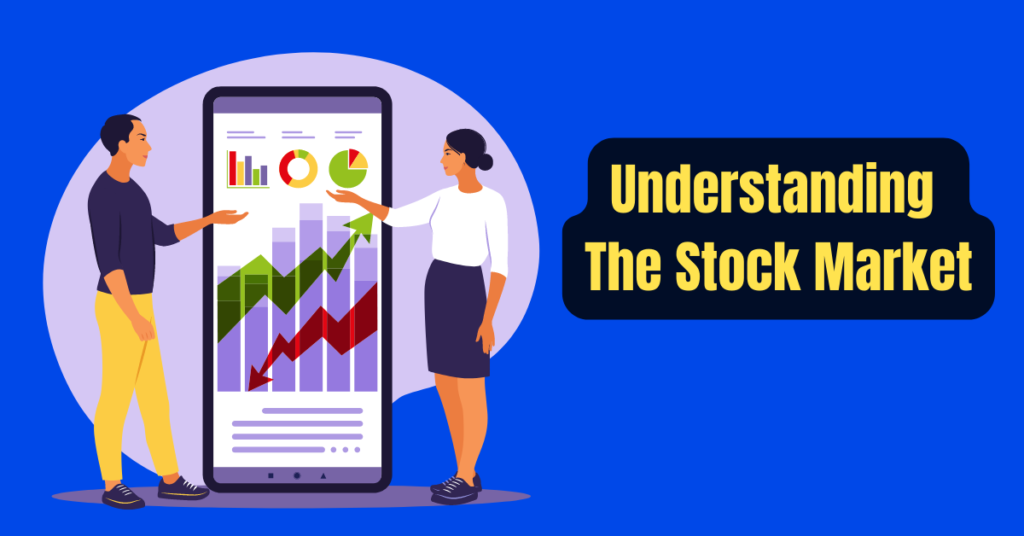Best Platforms for Stock Market Trading: A Comprehensive Guide
Best Platforms for Stock Market Trading: A Comprehensive Guide
When it comes to stock market trading, choosing the right platform is crucial. The platform you use can affect your trading experience, fees, and overall success. With so many options available, it can be overwhelming to know which one is right for you. In this blog, we will explore some of the best stock market trading platforms for different types of traders, highlighting their features, pros, and cons.
1. What to Look for in a Trading Platform
Before diving into specific platforms, it's important to understand what makes a trading platform good. Here are the key features to consider:
- Ease of Use: The platform should be user-friendly and intuitive.
- Fees and Commissions: Low trading fees can make a significant difference in your returns over time.
- Tools and Features: Platforms with research tools, charts, and news updates help traders make informed decisions.
- Security: Look for platforms that prioritize security, ensuring that your data and investments are protected.
- Customer Support: A responsive support team is important in case you run into issues.
2. Top Stock Market Trading Platforms
Now, let's take a closer look at some of the best platforms for stock market trading.
1. TD Ameritrade
Overview:
TD Ameritrade is one of the most well-known online brokers, offering a range of features for both beginners and experienced traders.
Pros:
- No commission on online stock, ETF, and options trades.
- Powerful research tools and educational resources.
- Access to advanced trading platforms (thinkorswim).
Cons:
- Limited international market access.
- The platform can feel overwhelming for beginners due to its extensive features.
2. E*TRADE
Overview:
E*TRADE is another popular platform, known for its ease of use and strong educational resources.
Pros:
- Low commissions and no account minimums.
- User-friendly interface and mobile app.
- Strong research and investment tools.
Cons:
- Limited customer support options.
- Higher fees for certain mutual fund transactions.
3. Fidelity
Overview:
Fidelity is a well-established brokerage that offers comprehensive services and excellent research tools.
Pros:
- Zero commission on online stock and ETF trades.
- Excellent customer service and educational materials.
- High-quality research tools.
Cons:
- Limited access to advanced trading features.
- Some fees for account maintenance and specific funds.
4. Robinhood
Overview:
Robinhood is known for revolutionizing commission-free trading, especially for beginners who want a simple platform.
Pros:
- No commissions on trades.
- Easy-to-use mobile app with a simple interface.
- Offers cryptocurrency trading alongside stocks.
Cons:
- Limited research and analysis tools.
- Customer support is not as robust as some competitors.
- Limited investment options compared to other brokers.
5. Charles Schwab
Overview:
Charles Schwab is a trusted platform that combines low-cost trading with a robust set of features.
Pros:
- Commission-free trading for stocks, ETFs, and options.
- Strong customer support and educational tools.
- Excellent for long-term investing and retirement accounts.
Cons:
- High margin rates.
- Some users may find the platform too basic if they want advanced trading features.
6. Interactive Brokers
Overview:
Interactive Brokers is a platform tailored to more advanced traders and international investors.
Pros:
- Extremely low commissions and fees.
- Access to international markets.
- Advanced trading tools and margin trading.
Cons:
- Steep learning curve for beginners.
- Complex pricing structure for certain trades.
7. Webull
Overview:
Webull is a newer platform offering commission-free trading with advanced tools for active traders.
Pros:
- No commissions on trades.
- Advanced charting and technical analysis tools.
- Free paper trading for beginners to practice.
Cons:
- Limited customer support.
- More suitable for experienced traders, as the interface can be overwhelming.
3. Best Platform Based on Your Needs
For Beginners:
If you're new to trading, platforms like Robinhood or E*TRADE are great options due to their user-friendly interfaces and educational resources.For Active Traders:
For those who want advanced tools, TD Ameritrade or Interactive Brokers are excellent choices. These platforms offer advanced charting tools and the ability to trade a wide variety of assets.For Low Fees:
If low costs are your top priority, Robinhood and Webull are great options, as they offer commission-free trading.For Long-Term Investors:
Fidelity and Charles Schwab are ideal for long-term investing, thanks to their strong research, retirement options, and low-cost investment options.
Choosing the right stock market trading platform depends on your individual needs and experience level. Whether you're a beginner looking for ease of use or an active trader seeking advanced tools, there's a platform out there for you. Take your time, do your research, and select a platform that aligns with your trading goals.
Share With Friends And Family Always Check For New Blog
